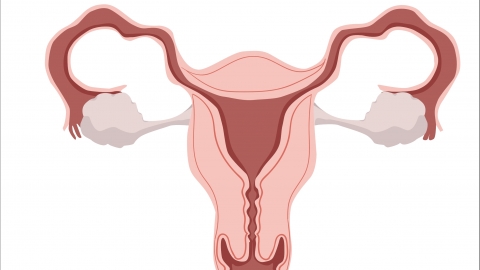What are the symptoms of uterine prolapse?
Generally, symptoms of uterine prolapse may include a sensation of tissue protruding from the vagina, feelings of pressure or pain in the lower abdomen and sacral region, abnormal urination or bowel movements, abnormal vaginal discharge, and discomfort during sexual intercourse. Patients are advised to seek timely medical attention for evaluation and appropriate treatment planning. A detailed analysis is as follows:
1. Vaginal bulging or protrusion
Patients often feel a bulging mass protruding from the vagina while walking, squatting, defecating, or engaging in physical labor. This bulge may decrease in size or retract spontaneously when resting or lying down. In mild cases, the protrusion is small and only appears when abdominal pressure increases. As the condition progresses, the bulging tissue may gradually enlarge and may not retract even at rest, requiring manual pushing to return it into the vagina.

2. Pressure sensation and sacral pain
Patients often feel a distinct pressure sensation in the lower abdomen, vagina, or perineum. This sensation typically worsens after prolonged standing, walking, or physical exertion and improves with bed rest. Additionally, the sacral region may experience aching or throbbing pain, which is usually persistent and intensifies with physical activity. These symptoms occur due to the prolapsed uterus pulling on surrounding tissues and ligaments.
3. Abnormal urination and bowel movements
Uterine prolapse may compress the bladder and urethra, causing symptoms such as frequent urination, urgency, or painful urination. Some patients may also experience urinary incontinence, particularly during activities that increase abdominal pressure, such as coughing, laughing, or sneezing, during which urine may leak involuntarily. If the rectum is compressed by the prolapsed uterus, patients may develop difficulty with bowel movements, constipation, or a sensation of rectal pressure during defecation.
4. Abnormal vaginal discharge
Due to the prolonged exposure of the cervix and vaginal walls to external friction, irritation, or infection, patients may experience increased vaginal discharge. The discharge may appear pale yellow, have a thick consistency, and sometimes contain blood streaks or emit an unpleasant odor. If infection occurs, purulent discharge may also be present.
5. Discomfort during sexual intercourse
Uterine prolapse can alter the internal vaginal structure, leading to pain, discomfort, or a sensation of a foreign body during sexual activity. This can significantly affect sexual quality. In severe cases, patients may even avoid sexual intercourse altogether due to pain.
In daily life, it is important to avoid factors that increase abdominal pressure, such as chronic constipation or persistent coughing. Postpartum rest and avoiding heavy physical labor too soon after childbirth can help prevent the occurrence or worsening of uterine prolapse.








